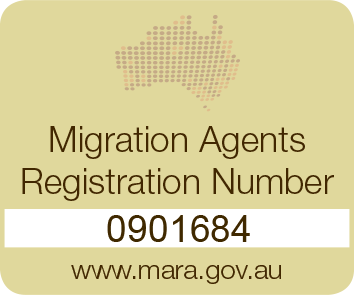You’ve got your visa, and you’re excited! Now it’s your time to finally migrate to Australia! Brilliant right? Yes! Definitely! But…
Moving to Australia will inevitably involve a range of hurdles, challenges and issues to overcome (if COVID-19 and border closures weren’t enough). It can be overwhelming and confusing to leave behind what you know and immerse yourself in an entirely new culture.
However, it helps to be aware of what you might face and how to overcome each challenge. That’s why today, we’re listing some common problems new Australian visa holders can face when they find themselves living in an unfamiliar culture in Australia.
We’re also going to run through a few ways you can tackle each problem – from culture shock to language barriers, to mental health issues.
#1: Homesickness
It’s no secret that moving to Australia can trigger bouts of homesickness. Missing the familiarity of home and the people you’ve left behind can mean you lose focus on the great things about your new home. Dealing with homesickness can be a difficult and confronting thing to do. It’s also different for everyone – what works for some may not for others.
Some things you could do to combat homesickness when you arrive in Australia include:
- Explore and sightsee. Filling up your schedule with sightseeing is a great way to help alleviate the sadness you might feel from being homesick. Take some time to research the great things to do in or around the Australian city in which you’re staying. And if you’ve feel like you’ve already seen the main tourist attractions, go for a wander and organically discover the local secret restaurants, bars, cafés, bookstores, and more. More than one of the ex-pats in our offices hopped on the available public trams, trains and ferries to explore their new cities, and all report having great fun on their journeys, not to mention discovering restaurants, pubs, music venues and other entertaining places at the same time.
- Try new experiences. This doesn’t have to mean that you should book a skydiving session just because you haven’t done it before. New experiences can involve actions as small as taking public transport for the whole week and navigating the city in a new way.
- Contact home. Sometimes, there’s just nothing like FaceTiming, Skyping or WhatsApping your family back home. But while it’s comforting to call home, try to limit how much you do so (this goes for looking through social media as well). Frequently looking back home can actually make your homesickness worse; you might start to feel you’re missing out on everything that’s happening.
#2: Difficulty with forming new relationships/friendships
Another common hurdle that many new Australian arrivals face is the process of forming new friendships. It can be especially difficult if you’re comparing your new acquaintances in Australia with your close friends back home. Try to remember that making friends is a different process for everyone. In some cases, being persistent is the key; in others, it’s patience.
If you’re finding it hard to make new friends, it may be a good idea to invest time in your hobbies. You should think about what you love doing and try to realise how this hobby has the potential to be a social activity. For example, while reading might seem like something you do by yourself, you can transform it into a social activity by joining a local book club or reading group.
Romantic relationships can similarly be difficult to maintain or start as a new Australian resident. Some new Australian visa holders are concerned about how their ex-pat life might affect future relationships. In this case, it is best not to focus on what might happen later on. Instead, direct your time and energy into your hobbies, interests and social gatherings.
On the other hand, new residents may also face problems with their current partners. From managing a long-distance relationship to helping your partner adapt to changes, to facing disapproval for moving overseas, a variety of relationship issues can affect your daily life and mental health.
For the relationship to work, constant communication is required in all these situations. Work together as a team; acknowledge that it may not be possible for you to move back home just yet, and focus on the positives of moving to a new country.
#3: Lack of professional networks
Having difficulty with forming personal relationships doesn’t just apply to friendships and romantic relationships. For new Australian migrants, the reason for coming to Australia is work-related, and with that comes a whole new problem commonly faced by ex-pats in Australia: networking.
Having to communicate and form relationships with those at your new job can be hard at first. Before you move to Australia, have a look on Facebook and LinkedIn to see if anyone you know lives, or has lived in Australia. Get in touch with them and find out if they know anyone you might be able to network with once you arrive in Australia.
Try to say yes to most activities you’re invited to and get involved with the office traditions. For example, there might be a monthly staff lunch that everyone is invited to. This is a great opportunity to tag along and have conversations with your colleagues!
#4: Culture shock
Culture shock is described as a set of feelings and reactions one might have upon spending time in a new country. These emotions are often in response to the realisation that there are a variety of cultural differences between what you might be used to, and what is a fact in the new country. For example, Christmas in Australia occurs in summer – which in itself can be surprising and confusing for new arrivals that are used to snow at that time.
Culture shock is all about understanding and learning about your new Australian culture, eventually adapting to it. Try to ask questions where you can. This will help you learn about how Australian locals think and act. You might be experiencing culture shock if you feel:
- Frustrated
- Irritable
- Embarrassed
- Apathetic
- Sleepless/fatigued
- Self-doubt
- Nostalgic
Be aware that you might even experience culture shock in the workplace. Some common workplace ethics in Australia that may not translate overseas include:
- Upfront communication. In many Eastern countries such as China, India and Japan, there can be a heavy emphasis on hierarchical structures. This doesn’t necessarily apply in Australian workplaces. You can expect upfront, to-the-point communication. You’ll often be encouraged to speak your mind in front of superiors and your team.
- Joking around. Humour in the workplace is actually highly valued as a form of communication and relationship building. It can be odd to get used to constant jokes, slang and even profanity if you haven’t worked in Australia before. Rest assured, your colleagues will welcome you warmly and you’ll eventually be joking along with them.
- Emphasis on work relationships. Whether it’s to dash out of the office for a coffee, a cigarette or lunch, there’s a huge focus on colleague-to-colleague relationships in Australian workplaces. Having drinks after work on Fridays is a common activity. Try to involve yourself in these outings; they are a great opportunity for socialising.
#5: Language barriers
New Australian arrivals report that the language barrier is a common problem they have faced. Your understanding of the language can affect your ability to make friends form romantic or professional relationships, and even complete day-to-day activities such as banking or buying groceries. There are plenty of ways in which you can tackle the language barrier. Some include:
- Using language translation apps on your phone
- Watching locally produced television and films to understand how language is used (watch with subtitles if you find it difficult)
- Keep notes on your phone every time you learn a new word
Even if you are a native English speaker, you might find that Australian slang and colloquialisms are completely foreign to you. Australian slang in particular is well-known for being used every day, and in obscure and sometimes mind-boggling ways, especially for those who aren’t used to it. That being said, it’s relatively easy to pick up once you’re exposed to it. Don’t be afraid to ask someone what they mean – you’ll catch on quickly and soon you’ll be joining in.
#6: Mental health issues
Missing your support network back home, combined with loneliness, the pressure to succeed and culture shock can result in negative impacts on your mental health. Some mental health issues faced by new Australian arrivals include:
- Anxiety
- Depression
- Bipolar disorder
- Eating disorders
If you notice symptoms of any of the above, you should be seeking help and guidance. There are many organisations in Australia dedicated to improving your mental health, such as Beyondblue, which offer 24/7 support. Simply talking to someone can alleviate the stress you’re feeling.
#7: Managing your decisions
Moving to Australia seems like a major decision in itself, but in reality, it’s just one decision followed by countless others that are just as important. For example, you’ll need to consider your healthcare, monthly bills and other week-by-week expenses.
The cost of living in Australia, if not researched beforehand, can be a shock faced by recently settled migrants. Australia has what is considered to be a high cost of living; that is, it costs more to maintain your standard of living.
Before coming to Australia, you should carefully plan your finances with the Australian cost of living firmly in mind. You should know all about the healthcare you’re planning to opt for, insurance payments and rough weekly expenses. While this might seem like a lot to do before even arriving in Australia, it will save you lots of time and stress in the future.
In any case, it pays to be prepared for all situations you might face as a new arrival. AHWC Immigration Law (formerly Australia Here We Come Migration) is an immigration law firm specialising in Australian visas and immigration law. We can help answer any queries about your existing visa or the process of organising a new one.
Get in touch!

 Points Test
Points Test
 Book Now
Book Now 


